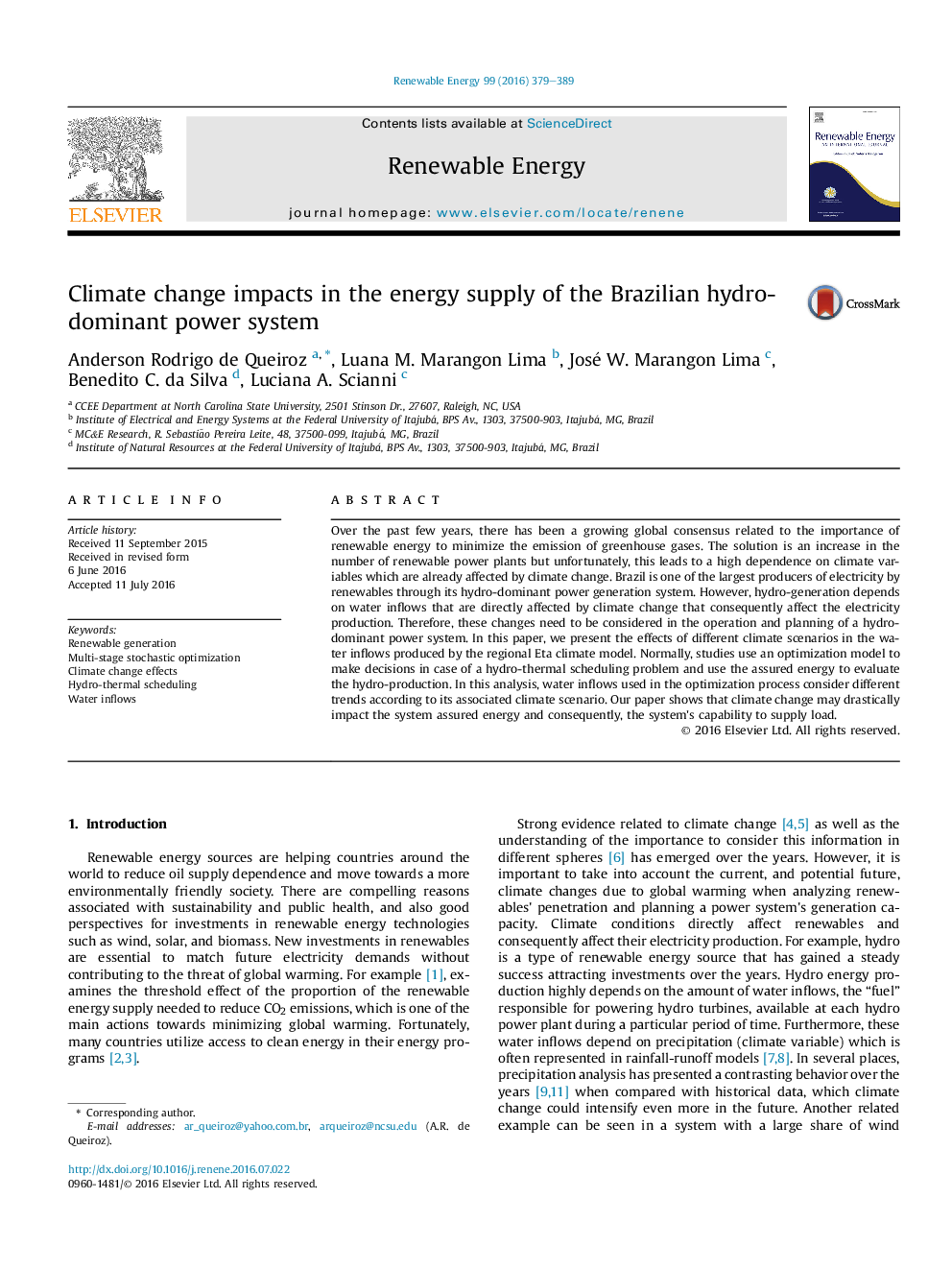| Article ID | Journal | Published Year | Pages | File Type |
|---|---|---|---|---|
| 6765504 | Renewable Energy | 2016 | 11 Pages |
Abstract
Over the past few years, there has been a growing global consensus related to the importance of renewable energy to minimize the emission of greenhouse gases. The solution is an increase in the number of renewable power plants but unfortunately, this leads to a high dependence on climate variables which are already affected by climate change. Brazil is one of the largest producers of electricity by renewables through its hydro-dominant power generation system. However, hydro-generation depends on water inflows that are directly affected by climate change that consequently affect the electricity production. Therefore, these changes need to be considered in the operation and planning of a hydro-dominant power system. In this paper, we present the effects of different climate scenarios in the water inflows produced by the regional Eta climate model. Normally, studies use an optimization model to make decisions in case of a hydro-thermal scheduling problem and use the assured energy to evaluate the hydro-production. In this analysis, water inflows used in the optimization process consider different trends according to its associated climate scenario. Our paper shows that climate change may drastically impact the system assured energy and consequently, the system's capability to supply load.
Related Topics
Physical Sciences and Engineering
Energy
Renewable Energy, Sustainability and the Environment
Authors
Anderson Rodrigo de Queiroz, Luana M. Marangon Lima, José W. Marangon Lima, Benedito C. da Silva, Luciana A. Scianni,
